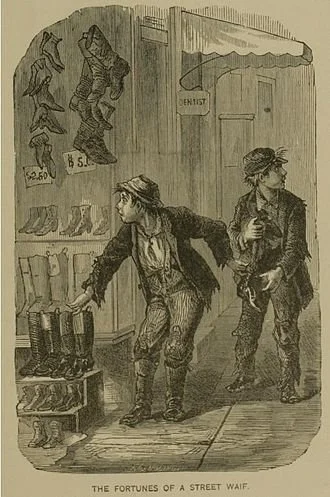Filtered by Category: Litigation
![An Update on Making a Document Production]()
Lawyers need to make sure any potential documents are coded for privilege and redacted, even if the documents are not considered responsive to a document request. This is because a non-responsive document may be produced anyway if it is the family member of—attached to or embedded in—another document that is responsive to a request and thus subject to production.
Read More
![Replevin Claims]()
A plaintiff may not want to wait until the end of a lawsuit to get her property out of the hands of the defendant. Lawsuits could take years. And the defendant, who must not be a good person if she stole the plaintiff’s property, may take bad care of it, destroy it, get rid of it, or hide it.
Read More
![An Update on Employment Discrimination and Harassment Claims]()
When determining whether to settle, it can be difficult for employees and employers to calculate an appropriate amount for the employer to pay. Unlike a contract dispute, where an agreement can set forth an amount due, there is no natural number that can compensate an employee for discrimination.
Read More
![More Thoughts on Responding to Document Requests]()
Often, parties will make compromises in discovery to avoid the expense and uncertainty of going to court. For example, if a party believes it is entitled to all of a company’s financial records and the recipient believes it is entitled to none, the two may compromise and the recipient may agree to produce some specific financial records.
Read More
![More Thoughts on Drafting Interrogatories]()
Interrogatories may also be useful to define what an adversary’s claims or defenses are. To that end, a party may ask an opponent to identify each fact that supports its claims or each instance of misconduct that it alleges. Although a party may be able to ask the same questions to a party at a deposition, an interrogatory is more likely to get a useful response and less likely to get an “I don’t know offhand” or some other incomplete answer.
Read More
![More Thoughts on the Enforcement of Judgments]()
If a defendant does not voluntarily pay a judgment, the plaintiff must find assets that belong to the defendant and collect them. This process may be easy for some defendants if they have well-known assets or if details about their bank accounts were shared in discovery. But for others, plaintiffs may need to hire an investigator or use public records (like property records or vehicle registrations) to find assets.
Read More
![Trade Secret Disputes]()
One problem in trade secret cases is that plaintiffs want to keep trade secrets a secret, but court filings are public documents. And so plaintiffs have to weigh the publicity from a lawsuit against the need to enforce their trade secret protections.
Read More
![An Update on Discovery to Aid Litigation Outside of the United States]()
The American legal system allows litigants to compel the production of far more evidence before trial than many other systems. And it does not limit this power to proceedings taking place within the United States. Instead, pursuant to statutes like 28 U.S.C. § 1782 or CPLR 3102(e), litigants can ask American courts to compel discovery for use in proceedings abroad.
Read More
![The Clerk's Office]()
Lawyers have a reputation for being self-important and rude. Members of the general public who litigate without lawyers have a reputation for being insane cranks. And clerks have to deal with a steady stream of both kinds of people every day. This can be frustrating.
Read More
![More Thoughts on Courtesies to Adversaries]()
The client may believe that, if her lawyer says “too bad” to an adversary who is about to go off on vacation and therefore cannot respond to a complaint, the lawyer may be doing justice by helping her win quickly and cheaply. But the truth is that the opposing counsel will likely be able to ask the court for an extension anyway and then be less willing to give extensions in return when the client’s counsel wants them. It’s a lose-lose situation.
Read More
![More Thoughts on Commercial Courts]()
Sophisticated businesses often agree to resolve their disputes through private arbitration instead of by going to court. Arbitration has numerous advantages, such as being confidential instead of public and being generally less expensive. But another advantage is that the parties can provide input on the selection of their arbitrator and thus can select an arbitrator and a forum that is well-suited for commercial disputes.
Read More
![Earning Clients' Trust]()
I try to let clients know that I understand what they are going through. It may make a lawyer easer to trust if they recognize the emotional challenges that client may be going through because that may mean they have more emotional intelligence, or at least experience with similar issues.
Read More











